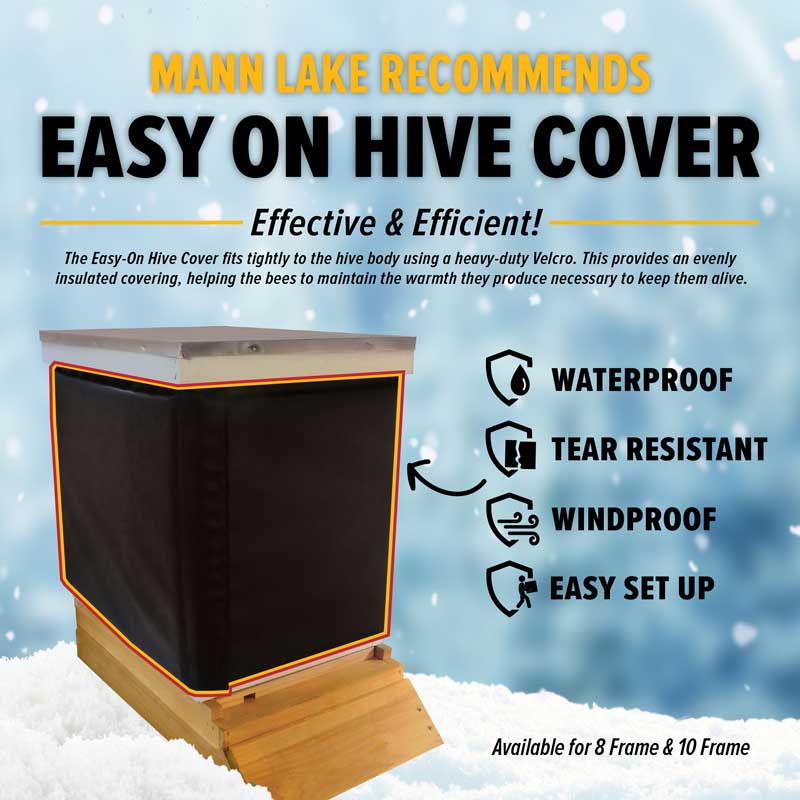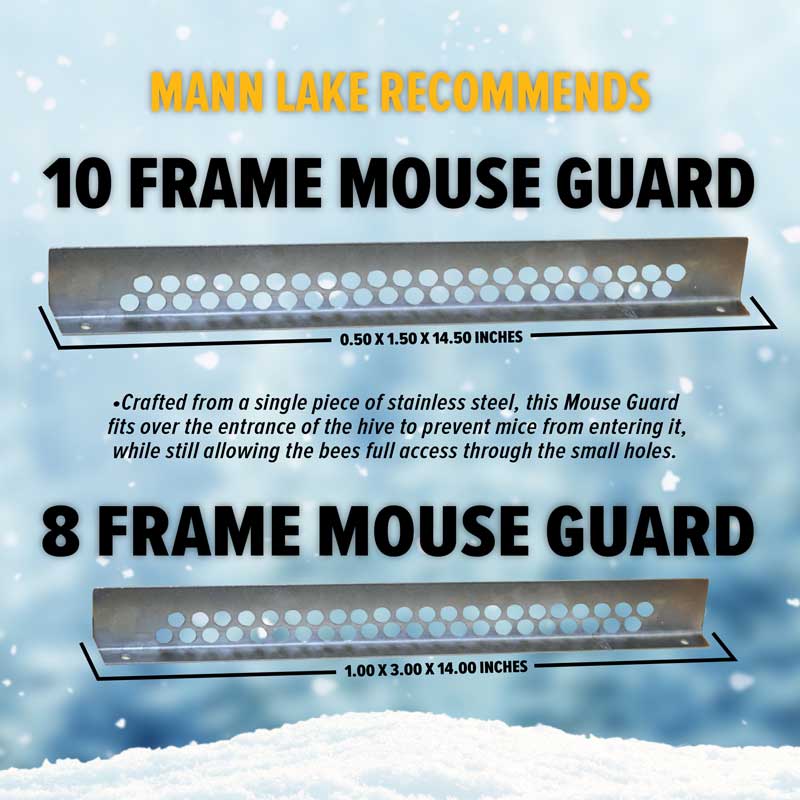Winterizing and Insulating Your Hive
Honey bees struggle throughout the winter months. The colony might lose a lot of members and become smaller due to the chilly, hard winds. However, beekeepers are still able to winter their honey bee colonies and have them reappear in the spring in tremendous strength. One approach to increase the likelihood that a colony will survive the winter is to insulate the beehive.
There are important steps to help your bees make it through the winter. In places where you may frequently experience below-freezing conditions, insulating the beehive and maintaining a full hive of honey is vital. You won't need to winterize your hive if you reside in a warm area like Florida. Be aware that you might need to modify this information to account for your particular environment and location.
Insulate and Leave Honey for your Bees to Overwinter
Two significant impacts resulting from insulating hives. First, insulating considerably improves a hive's chances of overwintering if it has low honey reserves. Second, a hive that is insulated will have a lot more honeycombs to harvest in the spring because the bees utilize honey as fuel to generate heat by flexing their wing muscles. Since the honeycombs operate as "thermal batteries" and may store heat during the day and gradually release it at night, they significantly reduce temperature fluctuations in the nest.

The Easy On Hive Cover is a waterproof and windproof wrap constructed with heavy tear-resistant marine-grade vinyl and foam board insulation. Helps keep your bees comfortable during the winter months. The cover fits tight onto hive bodies using heavy-duty Velcro and fits just under the hive lid so as to not block the hive opening or the top vent allowing moisture to escape. No tools are needed. Simply hold the cover by the Velcro ends with the seem side up. Lift over the hive and adjust for placement. Then, press the Velcro strip to close. The cover can be stored flat and reused for years.
Benefits of Using Beehive Cover
1. Preventing Condensation/Waterproof
Condensation that forms in the wintertime increases the risk of losing beehives. More losses occur during the winter than during other seasons for the honeybee colony in a beehive. Condensation water droplets have the ability to kill bees by chilling them. Using a hive cover significantly helps prevent condensation. Easy on Hive Cover has a top opening that allows ventilation and allows moisture to escape.
2. Reducing Heat Loss
The beehive can retain more heat by being wrapped. In the chilly winter, the beehive's increased heat storage prevents water from freezing and producing droplets. The honey bee colony may maintain the beehive's temperature with a cover without exerting themselves excessively.
3. Warming the hive
There is some wintertime sunshine in some areas. Sometimes the light is powerful enough to warm the beehive. On these hot days, dark-colored coverings aid in warming the hive outside. By doing this, bees are spared from exerting energy to keep the hive warm. They can focus their efforts on the other beehive duties and activities they must complete.
4. Increasing the winter survival rate of the colony
When beekeepers utilize winter hive covers, the beehive's overall survival percentage is greater. In wrapped beehives, springtime colony emergence results in greater foraging capacity and larger colony densities. It makes sure you have a colony that can provide outstanding beehive product outputs when the honey production year begins.

Crafted from a single piece of stainless steel, this Mouse Guard fits over the entrance of the hive to prevent mice from entering it, while still allowing the bees full access through the small holes.
What mouse would not want easy access to a lot of honey and warmth in the winter? Mice will ruin your comb in addition to eating your honey. Yes, honey is significant to many beekeepers, but beeswax comb is regarded as one of your most precious possessions. For this reason, using a mouse guard is essential!
A mouse guard also allows you to keep bees in your hive, which is a lesser-known benefit. You might want to apply this to your hive at a few specific points throughout the beekeeping season. When you relocate your hive or if you reside next to a pesticide-treated crop area, you might find this to be the most helpful. You would attach the mouse guard to your hive with the small-hole side facing down the night before the relocation or agricultural field treatment. This will allow your hive to breathe while keeping your bees inside.
Master Beekeeper- Frank Licata

